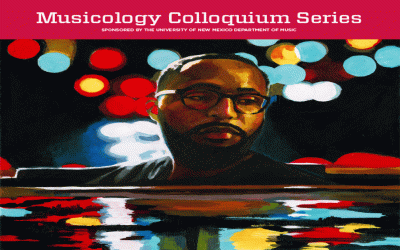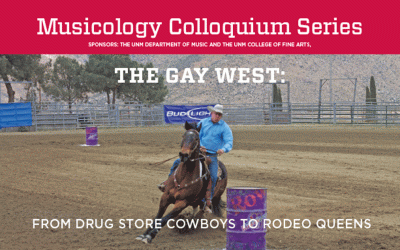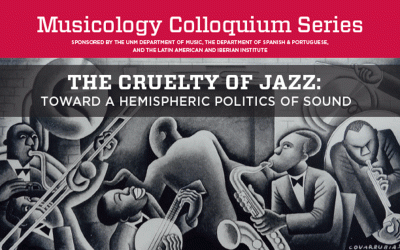MUSIC FROM THE AMERICAS presents
LOW FREQUENCY TRIO (Mexico)
New Music from Latin America
January 30th, 7:30 pm
Keller Hall, UNM Center for the Arts
Cristian Villafañe (Argentina) ¿Qué orilla?
Cecilia Arditto (Argentina) Viajes de las frecuencias en el agua
Wilfrido Terrazas (Mexico) Hub of the mind
Michel Soto (Mexico) Bug Core
Aldo Lombera (Mexico) Mezcolanzas
Formed by Antonio Rosales (bass clarinet), Juan José García (doublebass), and José Luis Hurtado (piano), LOW FREQUENCY TRIO is one of the few ensembles in the world that plays music that was exclusively composed for them. Its members are highly active in the international contemporary music scene and as a trio they have performed and held residencies at the Centro Mexicano para la Música y las Artes Sonoras, Centro de las Artes of San Luis Potosí, Conservatorio de las Rosas in Morelia, Festival Ecos y Sonidos, Festival Internacional Cervantino, the Museo Universitario de Arte Contemporáneo MUAC UNAM, and the Palacio de Bellas Artes in Mexico, the University of Texas UTRGV, and the University of New Mexico in the U.S., as well as the Universidad Nacional de Quilmes and the Conservatorio Manuel de Falla in Argentina. Since its foundation in 2016, LF3 has collaborated with more than 20 young and established composers in the creation and performance of fresh and innovative new works for this unique instrumentation which collective sound is yet to be discovered and repertoire until now was practically nonexistent.
Heterophony: Texture, Technique, and Social Commentary
This lecture is in two parts: the first draws from my research on the 1960s jazz avant-garde and musicians’ interests in heterophonic musical textures. For the second part, I perform original music that utilizes heterophony and “noise” in a solo electronic and improvised format.
The Gay West: From Drug Store Cowboys to Rodeo Queens
The masculine ideal represented by the American cowboy is variously interpreted by spectators, dancers, musicians, and contestants at gay rodeos and country western dances across the U.S. Examining embodied gender practices within these communities, this talk articulates the sonic, social, and geographical spaces of the gay American West.
The Cruelty of Jazz: Toward a Hemispheric Politics of Sound
Rooted in concepts of affect and Empire, this paper argues that jazz operated in various 20th century Latin American settings as a vital touchstone bearing the risks and benefits of urban modernization, hemispheric geopolitics, and transnational cultural production, “cruelly” echoing the United States’ cultural, political, and economic dominance in the hemisphere and beyond.



